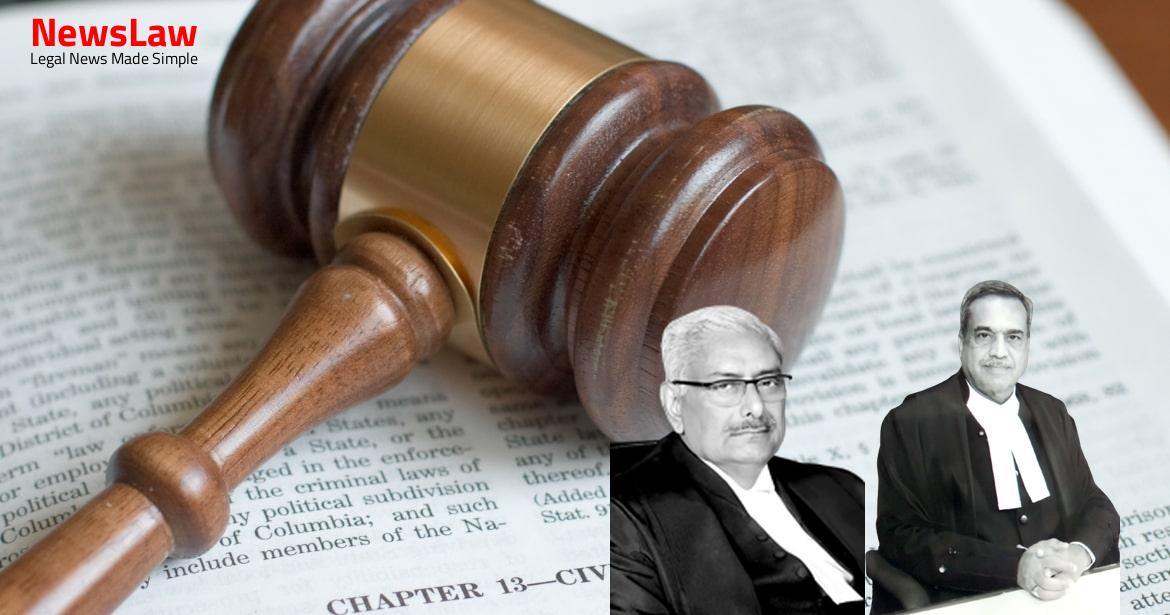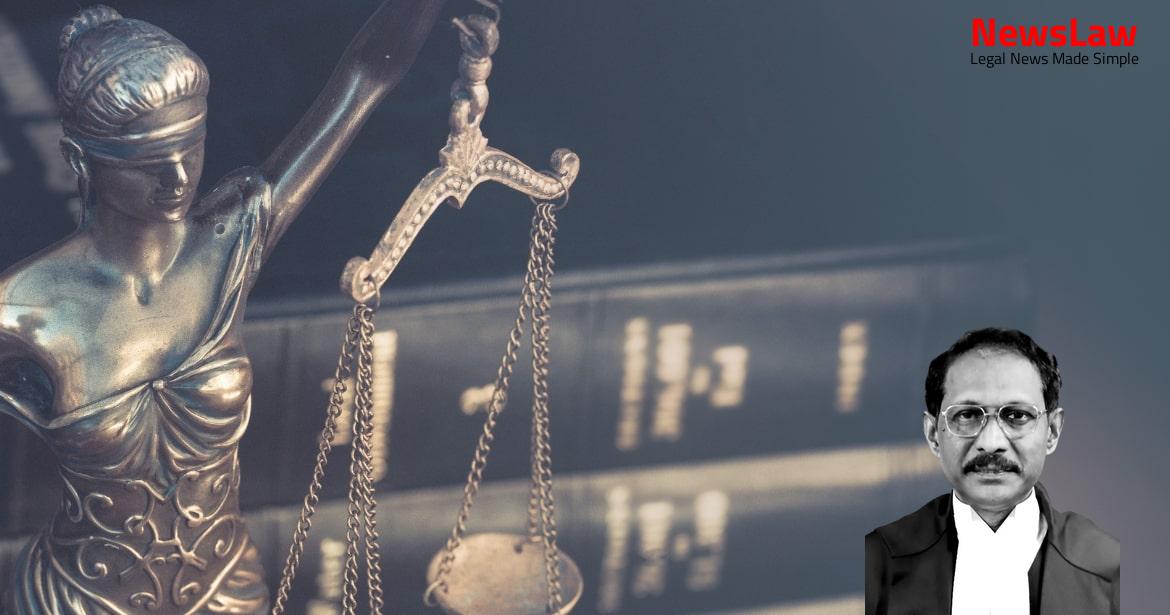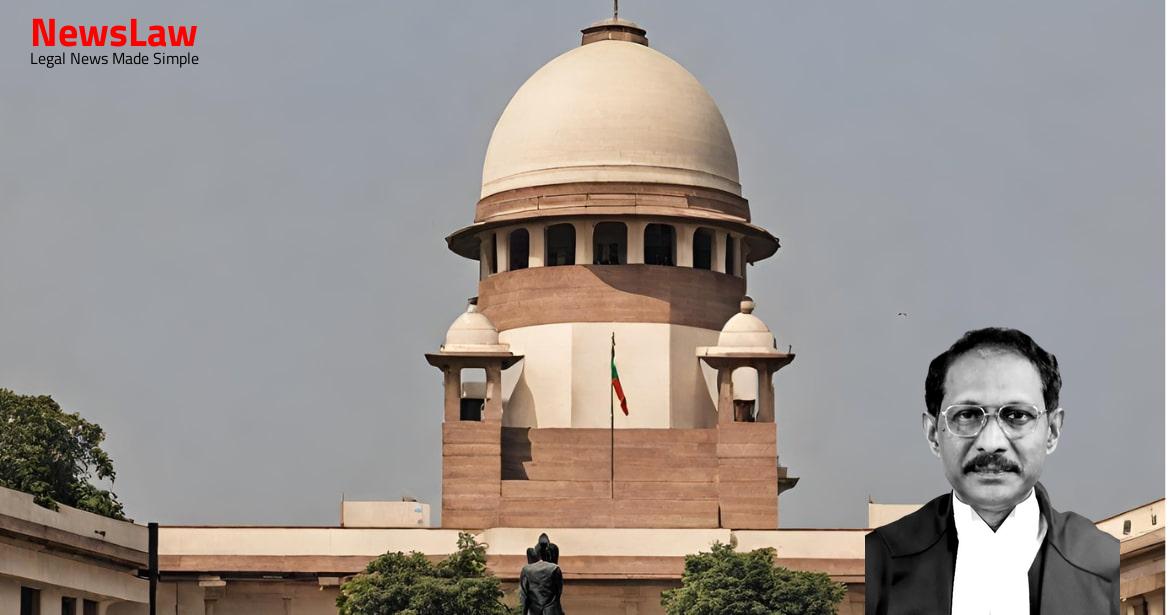A significant legal case involving Phoenix Infocity Private Limited and Avinash Hitech City 2 Society has been decided by the Supreme Court of India regarding dispute resolution. The court’s judgment highlights the importance of proper arbitration procedures in settling disputes between parties. Stay informed about the details of this landmark case in the legal landscape. #LegalCase #SupremeCourt #Arbitration #DisputeResolution
Facts
- The original land-owners entered into development agreements for an integrated complex with Phoenix Infocity Private Limited.
- Owners formed three societies under the Andhra Pradesh Societies Registration Act, 2001, including Avinash Hitech City 2 Society.
- Societies were granted co-developer status for the SEZ Project.
- An Addendum to the Supplementary Development Agreement was executed by the parties.
- Applications were filed by the owners for injunctions and arbitration under various sections.
- Appellant No. 1 Society converted a cold shell building to a warm shell using raised funds.
- Arbitration under Clause 19 of the Addendum was sought by the appellants.
- Supplementary Development Agreements were executed by the parties to the Development Agreements.
- Three applications were dismissed by the District Judge due to disputes not being covered under Clause 19 of the Addendum.
- The appellants appealed to the High Court against the dismissal of the application under Section 8 of the Arbitration and Conciliation Act.
Also Read: Address Update Requirement: Legal Implications for Corporate Entities
Arguments
- The dispute between the appellants and the respondents pertains to the quantum of share claimed by the respondents in the lease rents collected by the Society.
- The respondents are claiming their share based on the provisions of the Development Agreements, Supplementary Development Agreements, and the Addendum.
- Clause 19 of the Addendum clearly states that any dispute among the owners, including those related to the Addendum and its interpretation, shall be governed by Indian laws.
- The High Court erred in not considering the entirety of Clause 19 and the parties’ intentions in the Agreement/Addendum.
- Appellant no.1 Society, a co-developer, has received rent as per the Agreement’s Clause 13.
- Since the dispute involves sharing of rented space’s rent, Clause 19 of the Addendum is applicable.
- The High Court’s observation that Clause 19 applies only to disputes involving two or more owners of space in the same building is erroneous.
- Learned Senior Advocate for the respondents argued that the dispute between the parties should be referred to arbitration.
- The learned Senior Advocate emphasized that Clause 19 of the Addendum only covers disputes between owners, between societies, or between owners of space in the same building.
- The High Court correctly determined that the dispute between the respondents and the appellants did not fall within the scope of Clause 19.
- The High Court upheld the decision of the District Judge in not referring the dispute to arbitration.
- Based on the relevant sub-clauses of Clause 19, the High Court concluded that the dispute did not warrant arbitration proceedings.
Also Read: Army Discharge Case: Upholding Justice for Long Service Rendered
Analysis
- The dispute in the case is related to the sharing of rent for leased spaces in a building development project.
- Appellant no. 1 Society raised funds through bank loans for the project.
- The dispute involves Development Agreements, Supplementary Development Agreements, and an Addendum.
- Appellant no. 1 Society claims to be the co-developer in the project.
- The arbitration clause in the Addendum (Clause 19) dictates how disputes among parties should be settled.
- The parties involved in the dispute include developers, owners, societies, and original owners.
- The disagreement revolves around the distribution of lease rents among the parties based on their shares in the project.
- Sub-clause (d) of Clause 19 outlines the procedure for disputes involving two or more societies or owners who are members of different societies.
- Each party appoints one arbitrator from the office bearers of their respective societies in such disputes.
- The appointed arbitrators select a presiding arbitrator, who must be an office bearer of the Hitech City-2 Owners Welfare Association (HOWA) and acts as the Chairman of the arbitral tribunal.
- The venue for arbitration in such cases is specified to be in Hyderabad, India.
- Clause 19 of the Addendum to the Supplementary Development Agreement is deemed applicable to the disputes between the parties.
- The disputes initiated by the respondents under the Societies Registration Act should be referred to arbitration as per the aforementioned clause.
- Both the High Court and the District Judge erred in not referring the dispute to arbitration.
Also Read: Supreme Court Judgement on Maharashtra Prevention of Dangerous Activities Act, 1981
Decision
- High Court’s judgment dated 22.11.2018 in C.M.A. Nos. 1257, 1379, and 1380 of 2017 is quashed and set aside.
- District Judge’s order rejecting the applications under Section 8 of the Arbitration and Conciliation Act, 1996, is quashed and set aside.
- Applications under Section 8 of the Arbitration and Conciliation Act, 1996, submitted by the appellants are allowed.
- Disputes between the parties are directed to be referred to arbitration.
- All appeals are allowed with no costs.
Case Title: M/S AVINASH HITECH CITY 2 SOCIETY Vs. BODDU MANIKYA MALINI
Case Number: C.A. No.-007047-007049 / 2019



